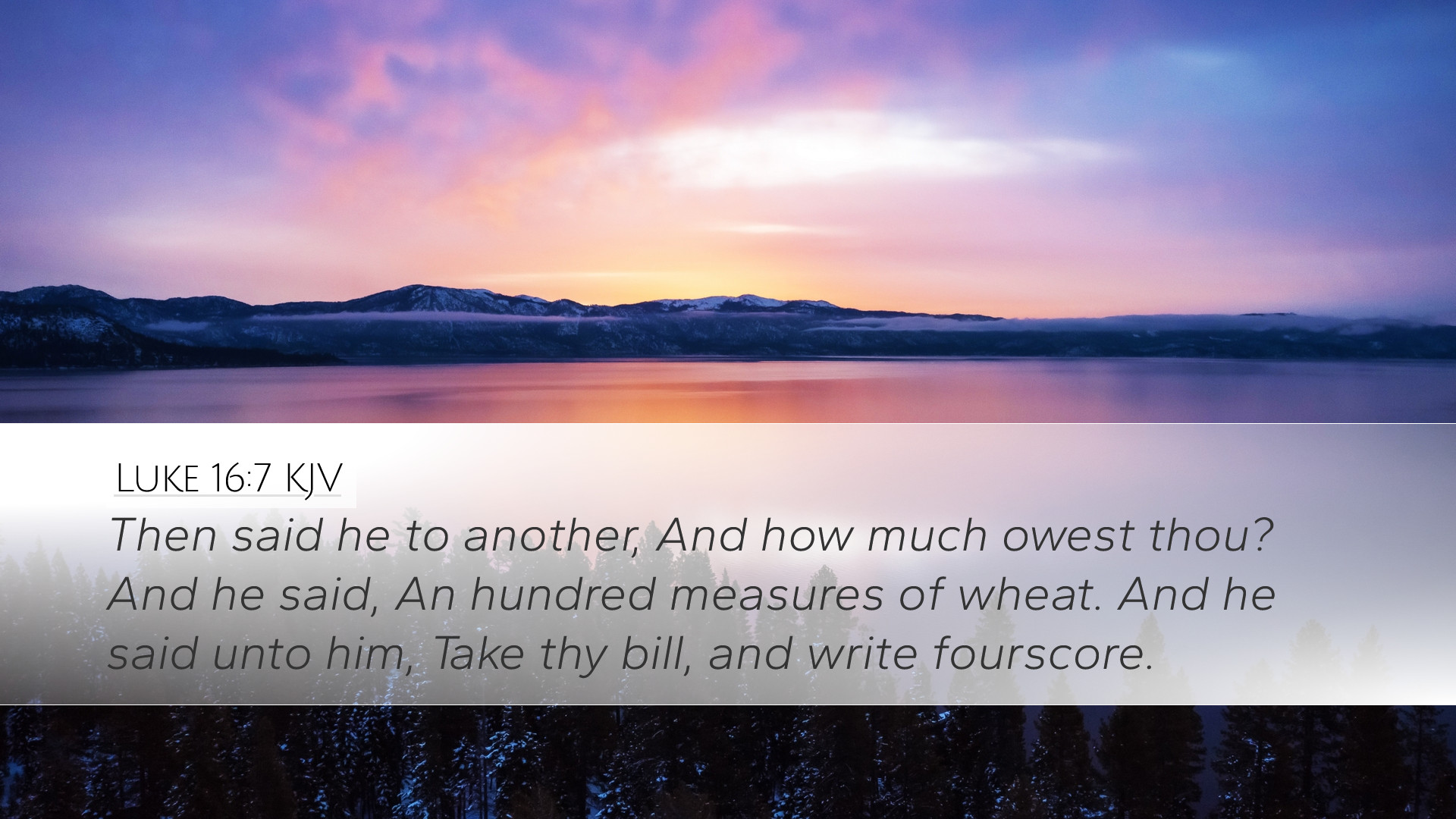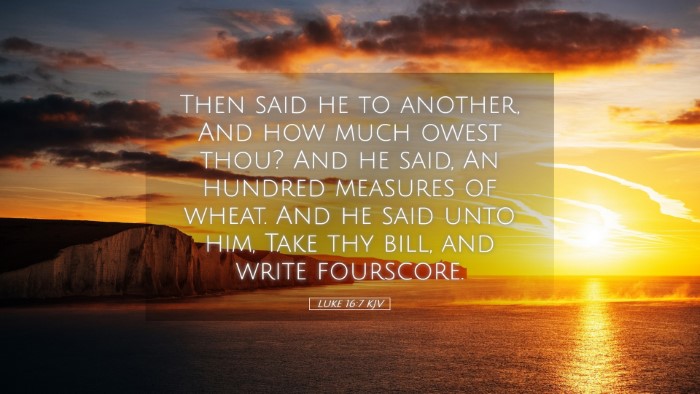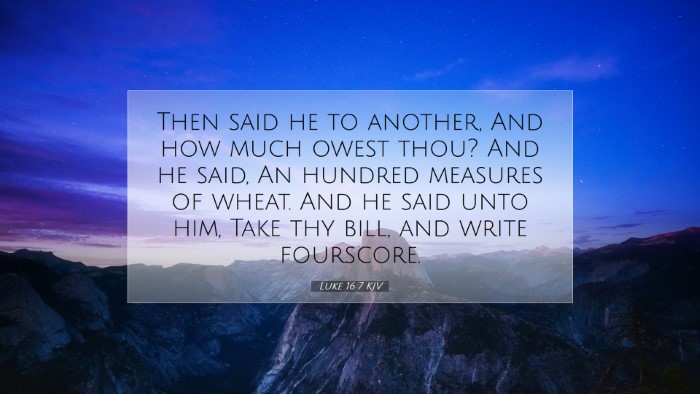Commentary on Luke 16:7
Luke 16:7 (KJV): "Then said he to another, And how much owest thou? And he said, An hundred measures of wheat. And he said unto him, Take thy bill, and write fourscore."
Introduction
This verse forms part of the Parable of the Unjust Steward, where Jesus presents a story that addresses the themes of stewardship, prudence, and the use of material wealth. It follows the steward's shrewd dealings with his master's debtors, illustrating both the wise and unwise use of resources.
Context and Structure
The preceding verses contextualize this interaction within a broader teaching on Mammon and the righteousness required in stewardship. Jesus' dialogue with the debtors reflects the master’s reaction to the steward’s actions and highlights the stark contrast between earthly and spiritual riches.
Lessons from the Verses
- Wisdom in Dealing with Resources: The steward's actions prompt a discussion on how one should handle wealth rightly.
- Understanding Debt: The focus on debits like measures of wheat and oil stresses moral responsibility in financial dealings.
- The Bottom Line: Making one's own future secure through shrewdness and prudence is a key biblical principle.
Insights from Public Domain Commentaries
Matthew Henry's Commentary
Matthew Henry emphasizes the steward’s cleverness in mitigating his own impending doom by reducing the debts owed to his master. He interprets the steward’s actions as an example of “the wisdom of the children of this world” that contrasts sharply with “the wisdom of the children of light.” Henry notes that the steward acted in a manner consistent with the mindset of the world, which is often to prioritize immediate advantage over spiritual and ethical considerations.
Albert Barnes' Notes on the Bible
Albert Barnes views this verse as key to understanding the parable's allegorical nature. He highlights the lesson of the steward making favorable arrangements for himself after he has been found guilty of mismanagement. Barnes interprets the phrase “take thy bill” as indicating that the steward sought to alleviate immediate burdens on debtors to shape public perception to his advantage. He emphasizes that worldly wisdom, while pragmatic, can sometimes disguise ulterior motives.
Adam Clarke's Commentary
Adam Clarke focuses on the economic implications of the steward’s dealings. He analyzes the rationale behind the reduction of debts as not merely a financial transaction but a moral decision reflective of one’s character. Clarke explains that reducing debt correlates to understanding one's moral obligations within the confines of economic interactions. He underscores that Jesus uses this parable to illustrate the need for wise and shrewd action even in spiritual matters, likening this to spiritual debts between humans and God.
Spiritual Applications
The implications of this passage for today's believers are profound:
- Stewardship: Believers are called to be wise stewards of both earthly resources and spiritual gifts.
- Moral Integrity: Engaging in one's community with integrity and foresight, even in financial matters, reflects the kingdom of God.
- Preparation for Eternity: Preparing for one's eternal future requires planning and wise investment in spiritual matters as opposed to only material concerns.
Conclusion
In conclusion, Luke 16:7 serves a dual purpose: it warns against a purely worldly perspective on financial management while simultaneously challenging the readers toward greater spiritual acuity in understanding the use of worldly resources. The commentaries of Henry, Barnes, and Clarke articulate a deep theological understanding which resonates with the mission of the clergy, students, theologians, and Bible scholars. This passage serves as a lasting call to balance wisdom in financial dealings with the overarching commandments of love, integrity, and accountability before God.


